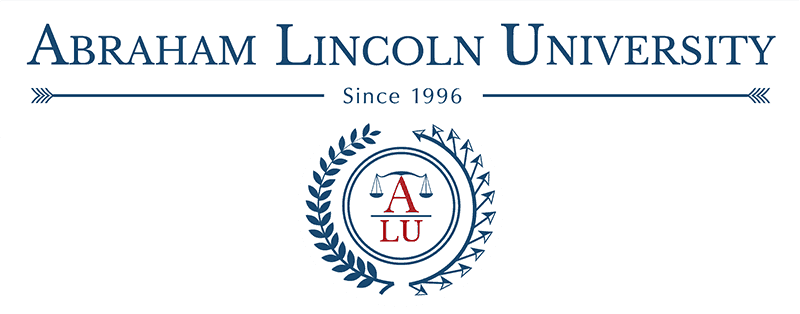For the law student who wants to know where the opportunities and law careers are after graduation, we have something you might want to read.
One area where litigation yields financial results involves filing qui tam cases through the federal False Claims Act. It not only helps the healthcare system, but it also saves taxpayers money. Whistleblowers who file these qui tam claims are entitled to a percentage of the profits if their information leads to a substantial recovery. To understand the False Claims Act, a law student can examine the statute and review the numerous press releases from the US Justice Department.
The Federal False Claims Act (FCA), 31 U.S.C. §§ 3729 – 3733, was enacted during Abraham Lincoln’s administration to help the government collect payments from contractors and individuals who submitted false bills to the US Department of Defense. The FCA has since been changed so that it now protects Medicare, Medicare Part D, Medicaid, and TRICARE (medical insurance for the families of veterans) from false claims.
Recent Healthcare Settlements and Judgments of False Claims Act Cases
According to a January 9, 2020 press release by the US Department of Justice (DOJ), the DOJ successfully obtained more than $3 billion in civil judgments and settlements during the fiscal year that ended September 30, 2019. The total amount of recoveries since the last major enhancement by Congress to the FCA (in 1986) is more than $60 billion.
The bulk of the $3 billion in recoveries were due to false claims in the healthcare industry. Nearly $2.6 billion of the recoveries involved:
- Hospitals
- Hospice organizations
- Pharmacies
- Physicians
- Laboratories
- Medical device manufacturers
- Managed care providers
The DOJ press release states that the agency has now recovered more than $2 billion in healthcare related fraudulent claims for the tenth year in a row. While the $2.6 billion recovery amount reflects recoveries due to fraud involving federal healthcare agencies, millions of dollars have also been recovered for state Medicaid programs due to federal False Claims Act cases.
But False Claims Act cases do more than help federal healthcare programs recover funds for fraudulent bills. It helps ensure the integrity of the healthcare system by ensuring that health providers play by the rules. The FCA also helps protect patients by ensuring that the safety and health of the patient comes before financial incentives for health providers.
Two of the largest recoveries in the past fiscal year involved the opioid crisis. In one case, “Insys Therapeutics paid $195 million to settle civil allegations that it paid kickbacks to induce physicians and nurse practitioners to prescribe Subsys for their patients.” The kickbacks were in the form of payments for “sham” speaker events, jobs for relatives and friends of the physicians prescribing the manufacturer’s medications, and expensive meals and entertainment. The DOJ asserted that the drug maker also encouraged doctors to prescribe the drug Subsys for patients who didn’t have cancer and “lied to insurers about patients’ diagnoses to ensure payment by federal healthcare programs.”
In a second case, “Reckitt Benckiser Group plc paid a total of $1.4 billion to resolve criminal and civil liability related to the marketing of the opioid addiction treatment drug Suboxone, which is a formulation of the opioid buprenorphine.” The allegations included assertions that Reckitt Benckiser Group promoted one of its drugs, Subozone, to doctors who were encouraged to write prescriptions that were “unsafe, ineffective, and medically unnecessary,” along with other false and misleading practices.
The DOJ’s healthcare claims also included:
- Payment by Avanir Pharmaceuticals of $95 million to settle charges of kickbacks and “false and misleading marketing.”
- The efforts of “drug manufacturers to facilitate increases in drug prices by funding the co-payments of Medicare patients.” Co-pays are a way to provide a check on healthcare expenses. In the past fiscal year, seven drug makers paid more than $624 million to settle “claims that they illegally paid patient copays for their own drugs through purportedly independent foundations that the companies in fact treated as mere conduits.”
- One pathology laboratory paid $63.5 million to settle charges it paid kickbacks to doctors who referred patients to their labs by providing “subsidies for electronic health records (EHR) systems and free or discounted technology consulting services.”
- A leading operator of “inpatient rehabilitation facilities (IRFs), paid $48 million to resolve allegations that some of its IRFs provided inaccurate information to Medicare to maintain their status as an IRF and to earn a higher rate of reimbursement, and that some admissions to its IRFs were not medically necessary.”
Whistleblower Recoveries
The False Claims Act contains provisions for processing claims by whistleblowers who disclose healthcare fraud. Whistleblowers can be awarded 10-30% of any recovery depending on the value of the disclosed information, whether the DOJ decides to intervene (accept) the claim, and the scope of the recovery. The award is based on the full recovery. A full recovery includes the amount that the federal agency, such as Medicare, paid to the billing healthcare provider. It can also include treble damages, statutory damages for each violation of the False Claims Act, and interest.
Whistleblowers include any person who knows about the fraud. Examples of healthcare whistleblowers include:
- Physicians
- Nurses
- Technicians
- Sales representatives
- Contractors and vendors
- Accountants
- Hospital administrators
- Anyone with knowledge that fraudulent billing is occurring
There are precise requirements that must be met in order for the Department of Justice to review and intervene in a healthcare fraud case:
- The disclosure must be first in line. A whistleblower claim is invalid if a prior whistleblower provided the same information.
- The disclosure must be private. The DOJ will not accept a whistleblower claim if it already has knowledge about the information in the disclosure.
- The disclosure must be under seal. The complaint should be confidential so the DOJ can review it before disclosing the allegations to the wrongdoer.
- Other conditions may apply.
To maximize the odds that the DOJ will intervene in the FCA case, whistleblowers should consult with experienced FCA attorneys. Additionally, if the DOJ declines to intervene, then the whistleblower must employ legal counsel in order to proceed directly against the wrongdoers.
Whistleblower claims under the False Claims Act are called “qui tam” actions. The whistleblower is called a relator.
Examples of False Bills in the Healthcare Sector
The government, patients, and other health providers all benefit when healthcare bills are submitted honestly. Some examples of dishonest billing include:
- Billing for unnecessary treatments, tests, services, and products
- Overbilling (charging for more than the fair market value of the services)
- Upcoding (the process of using a medical billing code that costs more than a lesser code – one that rightly applies to the treatment provided to the patient)
- Inflating the cost of medical expenses and overhead
- Charging for fictional patients
- Providing false certifications and licenses
- Providing false information
- Unbundling (billing for separate procedures when they could be billed under one procedure)
- Accepting kickbacks for the referral of patients
- Medical identity theft
Pharmaceutical Fraud
The Department of Justice will consider prosecuting every type of healthcare fraud. Some types of fraud are more common than other types. Some kinds of fraud involve medical schemes that defraud the government for millions or even billions of dollars.
One of the major types of fraud that can lead to whistleblower awards is pharmaceutical fraud. Drug makers try to get a large return on their investment by gaming or taking advantage of the healthcare system in the following ways.
- Off-label marketing.
Drug makers know that their medications are approved by the Food and Drug Administration (FDA) for specific uses. Additional uses are not permitted. Physicians, however, do have some discretion in how and when medications can be described that are off-label (beyond the approved FDA uses). To get around the strict requirements that drugs should only be used for approved purposes, some manufacturers improperly induce doctors to prescribe their drugs. These off-label marketing techniques are generally illegal. Whistleblowers should alert the government when the drug makers commit off-label marketing practices. At every level, doctors should be prescribing medications for the health of the patient and not because of an improper incentive. - Medicaid price violations.
Pharmacies can’t charge Medicaid more for their drugs than they charge private companies. Medicaid should get the best available price. - Illegal kickbacks.
Stark Law and the Anti-Kickback statute, reviewed below, require that doctors make referrals (of doctors, lab tests, medications, and other medical products and services) based on the needs of the patient and not the financial rewards for the referring doctors.
Stark and Anti-Kickback Statute Referral Laws
Stark and Anti-Kickback Statute referral laws both regulate when and how doctors can refer their patients to other healthcare service providers and other healthcare companies. Both laws seek to ensure that referrals are made based on the patient’s health needs above all other considerations.
Stark Law focuses on financial arrangements where the physician (or an immediate family member) has a financial interest in a “designated health facility” such as a medical testing facility. The law forbids these referrals unless an exception applies. Stark law applies to referrals by physicians. It is a civil remedy. There are mandatory exceptions. It applies only to Medicare and Medicaid billing.
The Anti-Kickback Statute (AKS) applies to inducements by any health entity to physicians to induce the physicians to refer business to the entity providing the kickback. Kickbacks include cash payments, sham agreements, discounts, waiving co-pays, expensive meals and vacations, and other items of value. There are voluntary safe harbors. The AKS provides for criminal and civil penalties. The AKS involves payments by any healthcare agency, not just Medicare and Medicaid.
Stark and AKS violations that involve authorized healthcare agencies are also generally violations of the False Claims Act. Therefore a whistleblower can file an FCA claim based on a Stark or AKS violation.
Exceptions and safe harbors generally require that the financial agreement:
- Be written in a document
- Be for fair market value
- Should not be based on the quantity or amount of the referrals
- Be listed in the Stark or AKS statute and comply with the terms of those laws
Research and Development
Many healthcare companies and universities depend on government grants to provide funding for their research. The government has the right to expect that grant applications and use of grant funds will be honest. When violations of the grant process occur, whistleblowers can file a claim under the False Claims Act. Examples of grant violations include:
- Providing false information to obtain the grant
- Using or creating false data
- Using the grant funds for unauthorized purposes
- Not complying with safety protocols
- Overcharging for research expenses
There are many other types of healthcare fraud that exist depending on the nature of the healthcare business and the type of relationships between the healthcare entities and the patients.
 About the Author
About the Author
Stephen Danz and the California law offices of Stephen Danz & Associates have been fighting for whistleblowers since 1984. The firm holds a strong track record of success in healthcare and other types of False Claims Act litigation. The firm works with fellow qui tam lawyers when cases are unusually complex or require unique strategies and assigns at least two lawyers to each qui tam case.






